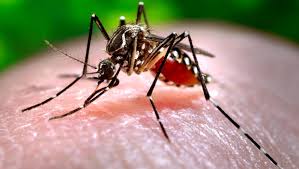A warmer climate may lead to higher growth and productivity on U.S. national forests and grasslands, but university and U.S. Forest Service researchers say this could reduce quantities of freshwater flowing from most of these lands, even with increases in precipitation. Results were published in Scientific Reports. “The national forests and grasslands managed by the U.S. Forest Service represent only …
Fighting Mosquitoes with GMO Mosquitoes
Genetic engineering isn’t just changing what’s in your food. A company called Oxitec has created a genetically engineered (GMO) mosquito, and they want to release millions of them into a community in the Florida Keys. The problem they’re trying to solve with these GMO bugs is real, but in this case, the cure might be as bad as the disease. …
Herbicide-Resistant Insects Are Destroying GMO Crops Like Never Before – Christina Sarich
Bt corn was originally created, or so Monsanto claims, to eradicate a farming nuisance known as root worm But as evidence from a GMO corn lab comes in, we are learning how the pests are living the lives in fields planted with GM Bt corn seed. In 2011, a cornfield planted in Iowa with Bt corn was found to be completely decimated …
Study shows how GM crops can have diminishing success fighting off insects
A new study from North Carolina State University and Clemson University finds the toxin in a widely used genetically modified (GM) crop is having little impact on the crop pest corn earworm (Helicoverpa zea) – which is consistent with predictions made almost 20 years ago that were largely ignored. The study may be a signal to pay closer attention to …
Deforestation is messing with our weather and our food
New research published in Nature Communications provides insight into how large-scale deforestation could impact global food production by triggering changes in local climate. In the study, researchers from the United States and China zero in on albedo (the amount of the sun’s radiation reflected from Earth’s surface) and evapotranspiration (the transport of water into the atmosphere from soil, vegetation, and …
Study: Only two intact forests left on Earth
A new study suggests the world’s forests are more fragmented than ever before. Analysis by researchers at North Carolina State University showed that if one were to be dropped randomly into one of the world’s many forests, there would be a 70 percent chance of being within a half-mile of the forest edge. And if forests are fragmented, so are …
Shrinking habitats have adverse effects on world ecosystems
An extensive study of global habitat fragmentation – the division of habitats into smaller and more isolated patches – points to major trouble for a number of the world’s ecosystems and the plants and animals living in them. The study shows that 70 percent of existing forest lands are within a half-mile of the forest edge, where encroaching urban, suburban …






